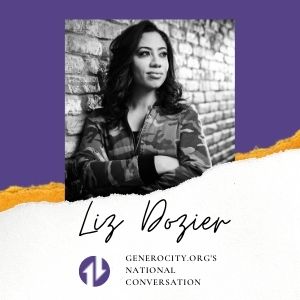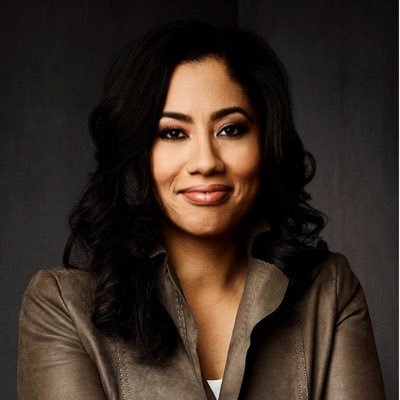Editor’s note: Several years ago Generocity interviewed Liz Dozier, the founder and CEO of Chicago Beyond, and heard her give the keynote at Philanthropy Network Greater Philadelphia‘s SPARX conference. It’s no exaggeration to say that we were blown away by Dozier’s insights. We recently asked her to write a guest column for us focused on data equity. We’re pleased to open our new, occasional “National Conversation” series with that column.
For decades, community organizations, researchers and funders have used data to tell stories and provide evidence for investments or divestment in resources that affect the livelihoods of people in communities across the country.
Informed or uninformed, these individuals or organizations wield substantial power. Power in deciding what social issues are worthy of investing in and addressing, and power in setting up the meaning-making of that data with the questions they ask.
But what happens if the research questions are unintentionally rooted in basic human bias? What if the research inputs are unfairly impacting our intended outcomes? What if the structures we use to find “what works” to improve communities are negatively influenced by the same power dynamics that have propped up those systemic injustices?
At Chicago Beyond, we believe that if data matters, we must question how it’s conducted, and we must question how it’s analyzed and interpreted. When we don’t examine the process of how research is completed and the evidence that is created, we continue to uphold the power dynamic that impedes our collective efforts towards a world of truth and impact.
How we disaggregate data will allow us to get an in-depth look at the discrepancies and trends across different demographics as well as entire populations. Disaggregating data is crucial for understanding a population’s circumstances and even lived experience. The better the data we have and how it is interpreted, the more effective the response can be in advancing equality for our young people and communities experiencing the brunt of inequities.
Interpretation is key and for the optimal interpretation, one must have an appropriate and finely tuned lens. Averages can hide information and create incentives not aligned to impact. A lens that is steeped in the work from a nuanced and proximate perspective can tease that out.
For greater impact, the focus must be on who is impacted and how, while still appropriately protecting individuals’ privacy.
When data fails to provide the context of the individual's lived experience, it can be dangerous.
Additionally, accountability must be created when looking at the change a program creates for participants starting out furthest behind, in the middle, and those ahead. Because when data fails to provide the context of the individual’s lived experience, it can be dangerous. It can lead to harm that generates inaccurate information or partial truths, ultimately inflicting more damage and trauma on our communities.
In 2019, Chicago Beyond created Why Am I Always Being Researched, a guidebook for community organizations, researchers, and funders to go from insufficient understanding to a more authentic truth. Our hope was to help shift the power dynamic in how community organizations, researchers, and funders work, level the playing field, and reckon with an unintended bias regarding research. We think of it as an equity-based approach to research. Listening to partners with lived experiences is the foundation, and accountability and transparency are the pillars that support the development of shared understanding about the issues, challenges, and solutions needed.
In my role as a former principal at Fenger Academy High School, I saw firsthand the side effects and harms of using a one-size-fits-all approach when it came to addressing the needs of students based off of data that wasn’t disaggregated and lacked context to the lived experience of students. And what I learned is that approach leaves students behind, widening inequalities that hold many of our students back. During my first year, there were approximately 300 arrests, a 20% dropout rate, and about a 40% state graduation rate.
It wasn’t until we started disaggregating this data and investing in restorative justice practices and building environments around our young people and their specific needs when we began to see the improvement we were intending to make. Fenger’s dropout rate dropped from 20% to 2%, attendance and graduation rates skyrocketed, and arrests fell from 300 to 10.
For too long, foundations and researchers have yielded all power.
None of that would have been possible without rethinking how we collected, used, and interpreted data, and then making the appropriate shifts in how we supported our students.
For too long, foundations and researchers have yielded all power. Intentional change requires openness to new perspectives and unlearning old ones. It’s time we all question and push against the outdated and problematic “how it has always been done” method of thinking in conducting research and the data that comes from it.
Data doesn’t tell the whole story of an individual or community. For funders, researchers, and community organizations to have a lasting impact on the systems, individuals, and communities, we first must start to believe the communities we support are the experts on their issues and solutions.
Working together is an honor and without the constraints of those false roles of funder, researcher, and grantee, lays the opportunity for empowerment, collaboration, and ultimately the transformative change we all seek.
Before you go...
Please consider supporting Technical.ly to keep our independent journalism strong. Unlike most business-focused media outlets, we don’t have a paywall. Instead, we count on your personal and organizational support.
3 ways to support our work:- Contribute to the Journalism Fund. Charitable giving ensures our information remains free and accessible for residents to discover workforce programs and entrepreneurship pathways. This includes philanthropic grants and individual tax-deductible donations from readers like you.
- Use our Preferred Partners. Our directory of vetted providers offers high-quality recommendations for services our readers need, and each referral supports our journalism.
- Use our services. If you need entrepreneurs and tech leaders to buy your services, are seeking technologists to hire or want more professionals to know about your ecosystem, Technical.ly has the biggest and most engaged audience in the mid-Atlantic. We help companies tell their stories and answer big questions to meet and serve our community.
Join our growing Slack community
Join 5,000 tech professionals and entrepreneurs in our community Slack today!

The person charged in the UnitedHealthcare CEO shooting had a ton of tech connections

The looming TikTok ban doesn’t strike financial fear into the hearts of creators — it’s community they’re worried about

Where are the country’s most vibrant tech and startup communities?



